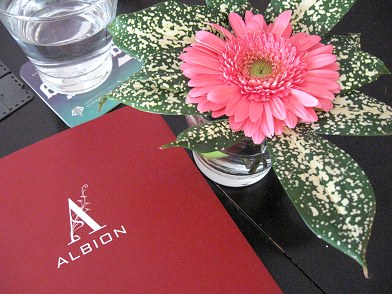While I'm relieved that it's finally published, I'm still averse to reading the many other reviews out there. Can any
more be said about it?
The only other Rowling book I read was
Tales of Beedle the Bard, which may have narrowed the scope of my review. I took only two days to read it and I didn't take notes and ... oh
tidak, I spelled the name of the killing curse wrong!
That's why I'm jittery about sending pieces to other media outlets.
But what's this? Oh look, the Zagat 2013 guide for
San Francsico and Bay Area restaurants is out.
I know I shouldn't, but ... I feel better.
Not so casual, actually
Nothing supernatural in JK Rowling's latest, but expect skeletons in closets, ghosts from the past and voices from beyond the grave
first published in
The Malaysian Insider, 03 October 2012
Just as in "Desperate Housewives", JK Rowling's first adult novel
The Casual Vacancy, begins with a death.
In the case of the book, it is the death of Barry Fairbrother, the parish councillor of the fictional small town of Pagford. Thus begins the rush for the plum position in the town's administrative body left by the "casual vacancy".
A character in a famous video game once likened people to rugs: shake them a few times and marvel at the amount of dirt that comes out. In this case, the whole town is the rug and, good grief, the kinds of dirt that gets shaken out by the race for the councillor's seat.
With the mystique attached to Rowling's blockbusting Harry Potter series, many wondered if she could weave another similarly successful spell with more mundane items: small-town politics, class wars, and a tangled web of intrigue and deceit among the residents that comes to light in the wake of a councillor's sudden departure.
The novel was said to be partly based on Rowling's childhood in Gloucestershire, so there is, of course, no magic in this novel. But do expect skeletons in closets, ghosts from the past, and a voice from beyond the grave enabled by technology.
For someone who has completed the decade-long Homeric multi-volume epic about a boy wizard, it can be a Herculean effort to wrap up a story in one book. Though Rowling somehow manages to do so, it still feels overwritten.
The novel starts off painfully slow as the stage is set and some background is established. The Pagford council is currently saddled with the Fields, a high-maintenance (costly) adjacent housing area plagued by a host of social ills.
The council's snooty faction wants nothing to do with the Fields, while the altruists aligned with the deceased councillor want to preserve the status quo.
Free from child-safe restraints that held her back for over 10 years, Rowling lets it rip. She annoys the hell out of readers with the grim, distressing portrayal of a town's fraying social fabric. Still, the level of estrangement in some of the families is extreme.
The grown-ups and kids appear terribly self-absorbed in the beginning, lost in their own worries and pursuits.
It gets worse as the story ponderously rolls on, no thanks to Rowling's over-characterisation of the people and places. Bits of bracket-encased backstory and flashbacks are inserted between present dialogue and narrative, making for a really tedious and choppy read. Secret thoughts and schemes are laid bare for all to gawp at. And many characters swear a lot.
That one still finds it all believable is perhaps a sign of the times.
By the time you get close to page 400 you decide that the whole town and the novel are beyond salvation. But just when you're ready to hurl your Avada Kedavras, a tragedy occurs, followed by a miracle.
Bhai Kanhaiya, a guru admired by the mother of the town's Sikh family, once served water to wounded soldiers from both sides of a conflict because "the light of God shines from every soul".
Like the spirit of hope at the bottom of Pandora's box, the guru's compassion appears from within an unexpected source during the novel's darkest phase, initiating an incredible transformation.
No magic? The speed at which this happens, after about 460 pages of misery, gloom, racism, misogyny, drugs, domestic abuse and other choice examples of despicable human behaviour, is nothing short of magical. Some may find this incredulous, even with some suspension of disbelief. Kinder hearts, however, may feel differently.
So maybe Rowling did work a tiny bit of her familiar alchemy into a realistic Muggleland fable about the worst and best in people, albeit one hobbled by a large cast, too much detail, a glacial build-up to an abrupt finale (with Rihanna and Jay-Z? Seriously?) and, perhaps, by the pressure to repeat her multi-book success with a single-book one.
Whether that little bit of magic can cut through the hype and criticism remains to be seen; it's barely a week since its release, after all.
Disappointed fans, meanwhile, can take heart in the
news that she's pondering a release a "director's cut" of several
Harry Potter books and a possible return to the Potterverse.
A spelling error was corrected in this version.
The Casual Vacancy
JK Rowling
Little, Brown (2012)
503 pages
Fiction
ISBN: 978-0-316-22853-4





